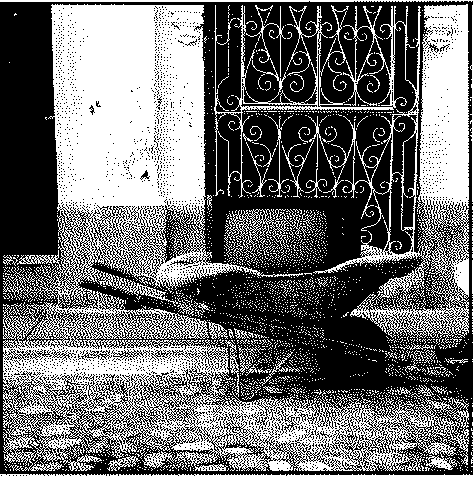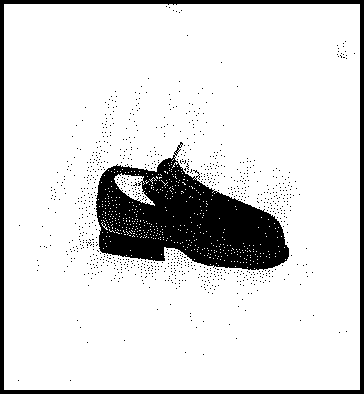Analogue
Zoe Leonard
(Western Center for the Arts/
MIT Press)
Zoe Leonard
(Western Center for the Arts/
MIT Press)

There are fifty or so photographs from Uganda, Cuba, Mexico, Chicago, Brooklyn and New York City, mostly of old television sets, garage doors (with graffiti), used shirts (for sale), doors to second-hand shops, windows of second-hand shops, ironing boards (for sale), shacks (labeled "Artist"), shoes (with hand-lettered sign "Back to School Shoes"), a closed-down barber shop ('NEW IMAGES UNISEX,") road-side stands (with old Coca-Cola signs), used shoes (set up on the sidewalk), a storefront named "TRUE DESIRES FOR BEAUTY," and countless other places that you and I would walk by or drive by as quickly as possible, all being equally depressing when viewed from the street.
In her comments, Ms. Leonard quotes from James Baldwin, Erskine Caldwell, Wally Shawn, Emile Zola, T. S. Eliot and other depressives. In fact the whole book is crammed with such despair that we caught ourselves wondering how Ms. Leonard was able to pick up her camera (and herself) up in the morning to make it out of her apartment onto the drab streets to record this bleakness in the urban depths of Uganda, Mexico, and Brooklyn. It reminds one of the comic-book that came from R. Crumb's pen: "Why Bother?"

"History will be kind to me for I intend to write it," offers Ms. Leonard in the text. Let us hope that history is kinder to her than her vista of the world, which is so unsparing as to be almost suicidal. At one point we got turned around, found we were looking at the book upside-down. It was as good, we discovered, standing on its head as not.
--- Richard Saturday